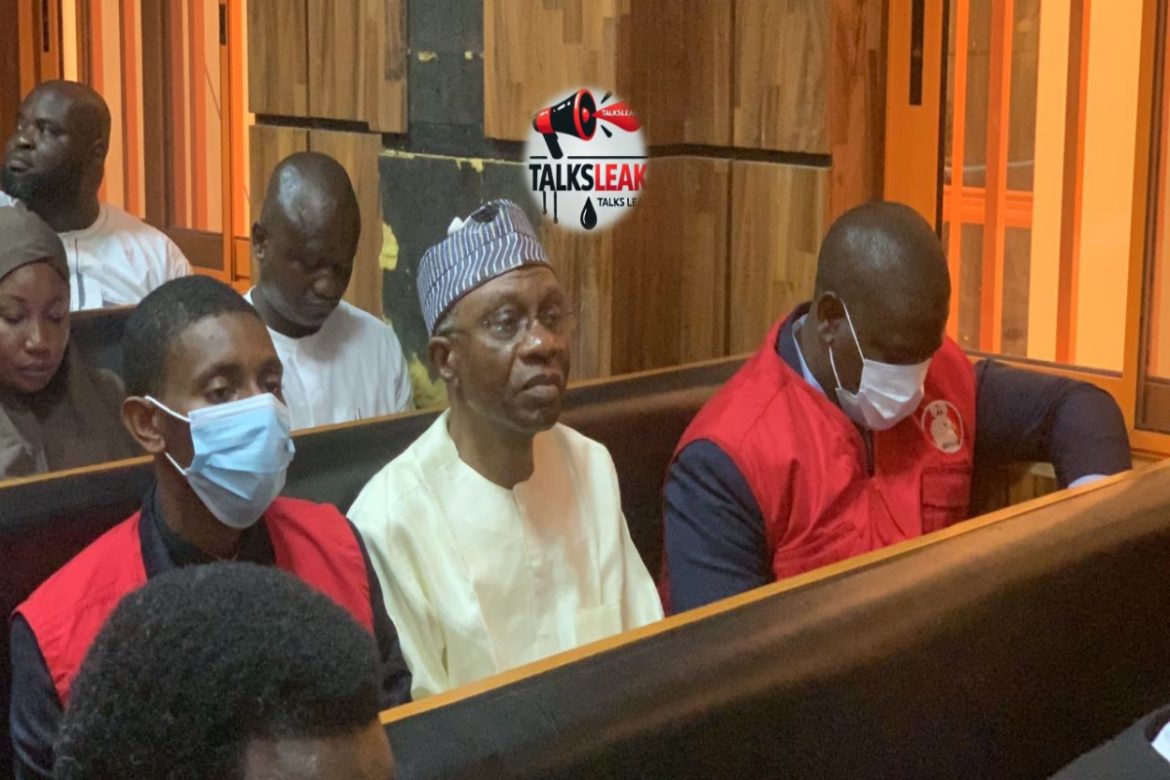A Federal Capital Territory (FCT) High Court sitting in Abuja has granted bail to the former Governor of the Central Bank of Nigeria (CBN), Godwin Emefiele, in the sum of ₦300 million, as legal proceedings continue over an alleged multi-billion naira property scandal.
The decision was handed down by Justice Hamza Mu’azu, who imposed stringent bail conditions, including the surrender of all travel documents and a restriction that bars the former apex bank chief from leaving the Abuja Municipal Area Council during the trial period.
Under the terms of the bail, Emefiele is required to provide two sureties who must each own landed property within Maitama, one of Abuja’s highbrow districts. These sureties must also submit original Certificates of Occupancy and other valid title documents to the court. The judge emphasized that these measures were necessary to prevent flight risk, noting that Emefiele’s stature and the seriousness of the charges required careful monitoring.
Despite the bail ruling, Emefiele is to remain in Kuje Correctional Centre until he meets the bail terms.
At the heart of the ongoing case is a controversial estate of 753 luxury duplexes located in Lokogoma, Abuja. According to the Economic and Financial Crimes Commission (EFCC), the properties were acquired using funds illicitly diverted from public coffers through a network of front companies, allegedly controlled by Emefiele and close associates.
Documents presented to the court show that over ₦2.2 billion was funneled through three proxy companies:
- Ice Frozen Food & Ventures
- Kelvito Integrated Services
- Ifeadigo Integrated Services
The EFCC claims these companies were used to disguise illicit foreign exchange gains and procurement fraud. Investigators reportedly traced the funds back to kickbacks from currency deals during Emefiele’s time as CBN governor.
In December 2024, the FCT High Court issued an interim forfeiture order on the disputed properties. This was followed by a final forfeiture ruling in April 2025, when the court dismissed Emefiele’s motion seeking to reclaim the assets.
Justice Jude Onwuegbuzie, who issued the forfeiture judgment, stated that proper legal procedures had been followed and that Emefiele failed to present convincing evidence to counter the EFCC’s findings.
However, in May 2025, Emefiele filed an appeal at the Court of Appeal in Abuja, challenging the forfeiture on grounds of alleged procedural violations and rights infringement. The appeal remains pending.
Emefiele faces multiple charges bordering on fraud, abuse of office, conspiracy, and financial misappropriation. The EFCC alleges that during his tenure as CBN governor, he facilitated unauthorized transactions and created slush funds that were funneled through personal and corporate accounts.
The trial is expected to resume fully in the coming weeks, with the next court appearance scheduled for later this year. Legal analysts believe the outcome could become a litmus test for the Tinubu administration’s commitment to transparency and high-level accountability.
The case has continued to draw public interest, with many Nigerians expressing frustration over the scale of alleged corruption in high places. While some applaud the EFCC’s efforts, others remain skeptical, citing past examples where prominent figures were never fully prosecuted.
The bail ruling sparked mixed reactions online, with critics questioning whether bail at such a figure is a sufficient deterrent or just another formality in a high-profile case.
As former CBN Governor Godwin Emefiele prepares for trial, the spotlight remains on both the judiciary and anti-graft agencies. The gravity of the allegations, coupled with the size of the assets involved, makes this one of the most significant corruption cases in recent Nigerian history. Whether the legal process will lead to conviction or exoneration remains to be seen—but for now, Emefiele must meet his bail conditions or remain behind bars.


